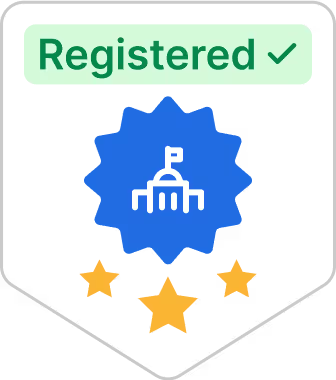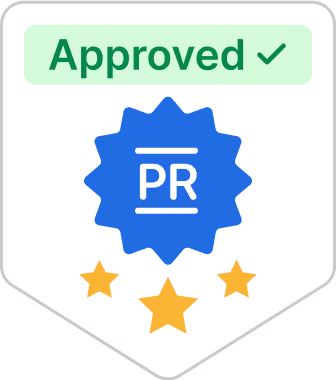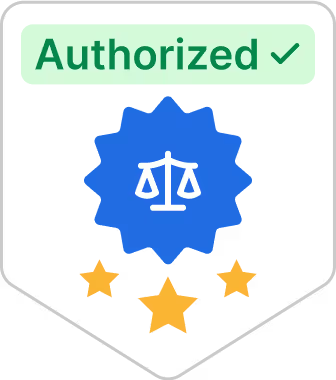How long does it take to get disability?

Before we get into how long it takes to get disability, we need to answer the question: what is SSDI? Social Security Disability Insurance, often shortened to SSDI, is an extremely important government program that helps tens of millions of disabled Americans deal with financial burdens. SSDI benefits include a monthly cash payment, as well as the ability to receive government health insurance through Medicare after two years on disability insurance.
For many people, applying for disability benefits can be crucial for their family’s well-being. However, the application process is often very confusing and frustrating. You deserve to know how long you will have to wait for your Social Security disability application to be reviewed, and how long after being approved that you will start to receive your money.
This guide will take you through every step of the approval process, so you know exactly what to expect when you apply.
Applying for disability benefits
You can apply for disability benefits online, over the phone, or in-person at one of your local Social Security office locations. You need the following to complete your SSDI application:
- Your Social Security number
- Your birth certificate or baptismal certificate
- Names, addresses, and phone numbers of doctors who treated and diagnosed you
- Names, addresses, and phone numbers of any caseworkers you met with
- Names, addresses, and dates of any hospital or clinic visits
- Names and dosages of the prescription drugs you take
- Any medical records you already have in your possession from doctors, therapists, etc.
- Laboratory test and physical examination results
- Information about where you worked and what kind of role you had
- A copy of your most recent W-2, or the past year’s federal tax return if you were self-employed
You will be asked to fill out a form giving Social Security Administration (SSA) officials the right to ask your doctors and other healthcare workers for medical information about you. Without signing this form, it would be illegal for healthcare workers to share any information about your medical condition.
Now you may be wondering: what conditions qualify for disability? The requirements and conditions that must be met in order for an individual to receive disability benefits are as follows:
- The impairing condition must be expected to last at least 12 months or to lead to your death
- The condition has to fully prevent you from making a living in order to qualify
- Partial or temporary disabilities are not covered by disability insurance
- You may be able to work partially while receiving disability insurance, but you cannot earn more than $1,070 per month from your work
Who decides if you are approved for disability?
Ultimately, it is not your doctors who decide if you should be approved for Social Security disability benefits. Your doctors provide a diagnosis and information about your ability to do basic work-related activities like walking, sitting, and standing for extended periods of time, among other things. However, the SSA has their own specific definitions of what qualifies as a disability to guide each social security office in making a disability determination. Their definitions may be different than your doctors’ opinions.
Even if the medical information provided by your doctors aligns with the SSA’s definition of a disability, you may still be denied disability benefits based on your work history. You need to have worked a certain number of years (in a tax-paying job) before becoming disabled in order to qualify for SSDI.
The SSA’s system for calculating how many years you need to have worked is a bit complicated, and it changes based on your age. As a general rule of thumb, most applicants will need to have worked for any 5 of the 10 years before becoming disabled.
Average wait time for social security disability decision
Once you’ve submitted your application for disability benefits, the average wait time for a Social Security disability decision will likely be between three to five months for an initial decision. The wait time after this initial decision varies greatly depending on if you were approved right away, or if your claim was denied and you need to appeal your decision.
Wait time if you are initially approved
If you happen to be approved for disability benefits on the SSA’s initial decision, you will receive a notice containing the date your disability began, as well as your monthly benefit amount (the average award is $1,258 as of 2020). We must note that the SSA’s date of disability may differ from what you believe your date of disability to be. This date of disability is a vital part of your Social Security disability claim because it affects when you will begin receiving your money.
Disability benefits will not start being paid until the sixth full month after your disability began.
For example: If the SSA determines that your disability began on January 15, your benefits will not begin until July—the sixth full month after January. On top of that wait time, you have to consider that SSDI benefits are paid in the month following the month they correspond to. In other words, if you become eligible for benefits in July, you won’t receive money until August.
With all of these waiting periods put together, you may have to wait anywhere from 6 months to a full year to actually receive your cash benefit—even if you are approved quickly.
Wait time if you are not initially approved
After waiting 3 to 5 months for your initial decision, you may receive notice from the SSA informing you that your claim has not been approved. In this case, you may still be able to get disability approval at a later date by appealing the SSA’s decision.
You can request an appeal hearing, in which a judge independent of the SSA will hear your case and determine if the SSA made a mistake in denying your claim. Unfortunately, you will have to spend several more months waiting for an appeal hearing—and there is no guarantee that a hearing will lead to your Social Security claim being approved.
The number of months you may have to wait for an appeal hearing varies by location. Here are a few examples of average waiting times in major cities throughout the United States:
- Philadelphia, 8 months
- Cleveland, 8 months
- Chicago, 9 months
- Detroit, 9 months
- New York, 10 months
- Washington D.C., 10 months
- Phoenix, 14 months
- Seattle, 14 months
- Las Vegas, 15 months
- West Los Angeles, 17 months
- San Francisco, 17 months
How to reduce your application waiting time
So, how long does it take to get approved for disability? It often takes months or even years to start receiving disability benefits. However, there are a few things you can do to help reduce that long waiting period.
Send all of your medical records
The best way to accelerate the application process is to prepare all of your relevant medical records beforehand. That way, the SSA officials reviewing your claim will not have to spend as much time contacting you and your doctors with follow-up questions about your condition.
Compassionate allowances
The Compassionate Allowances program is designed to help people with the most severe conditions get Social Security disability benefits faster. The SSA keeps a list of over 200 conditions they consider the most severe. If you have one of these conditions, you may be able to reduce your wait time to a matter of weeks. A few examples of conditions on the Compassionate Allowances list are:
- Lou Gehrig’s Disease (ALS)
- Early Onset Alzheimer’s Disease
- Tay-Sachs Disease
- Many forms of inoperable or metastatic cancer
The SSA screens disability applications for conditions on the Compassionate Allowances list. However, it’s smart to let them know that you are applying due to one of these conditions. Again, it is important that you send all of your medical records promptly.
Presumptive disability
Like the Compassionate Allowances program, the Presumptive Disability program is meant to provide quick assistance to people with severe conditions. A Presumptive Disability is any condition that the SSA feels is the most likely to result in an approved claim, including:
- Lou Gehrig’s Disease (ALS)
- Spinal cord injuries
- Down Syndrome
- End-Stage Renal Disease
Applicants with a Presumptive Disability are able to receive SSI payments—a different kind of monthly cash benefit—while their disability claim is being processed.
Veterans
Military veterans can have their applications fast-tracked if their disability began while they were enlisted and on active duty.
Contact Your representatives In congress
When getting involved with government agencies like Social Security, it can be very helpful to get the support of your local and state representatives. Members of Congress have staff members who respond to emails and calls from the community. If you reach out to them about your disability claim, they can contact the SSA on your behalf to move the process along more quickly.
Simplify the process with us
The SSA provides lots of valuable programs for people in need. That said, it can be tricky to navigate their applications, get in touch with officials, and receive timely responses. It can be a major headache just to replace your Social Security card (which is needed for SSDI).
Simplify the process and apply for a social security card online with GOV+.
Sources:
- Disability Benefits Help. How long do I have to work to qualify for Disability? https://www.disability-benefits-help.org/faq/work-requirement-qualify-social-security-disability
- Disability Secrets. What is the Average Wait Time for a Disability Hearing? https://www.disabilitysecrets.com/disability-reflection-12.html
- Social Security Administration. Disability Benefits. https://www.ssa.gov/pubs/EN-05-10029.pdf
- Social Security. Average Wait Time Until Hearing Held Report. https://www.ssa.gov/appeals/DataSets/01_NetStat_Report.html























